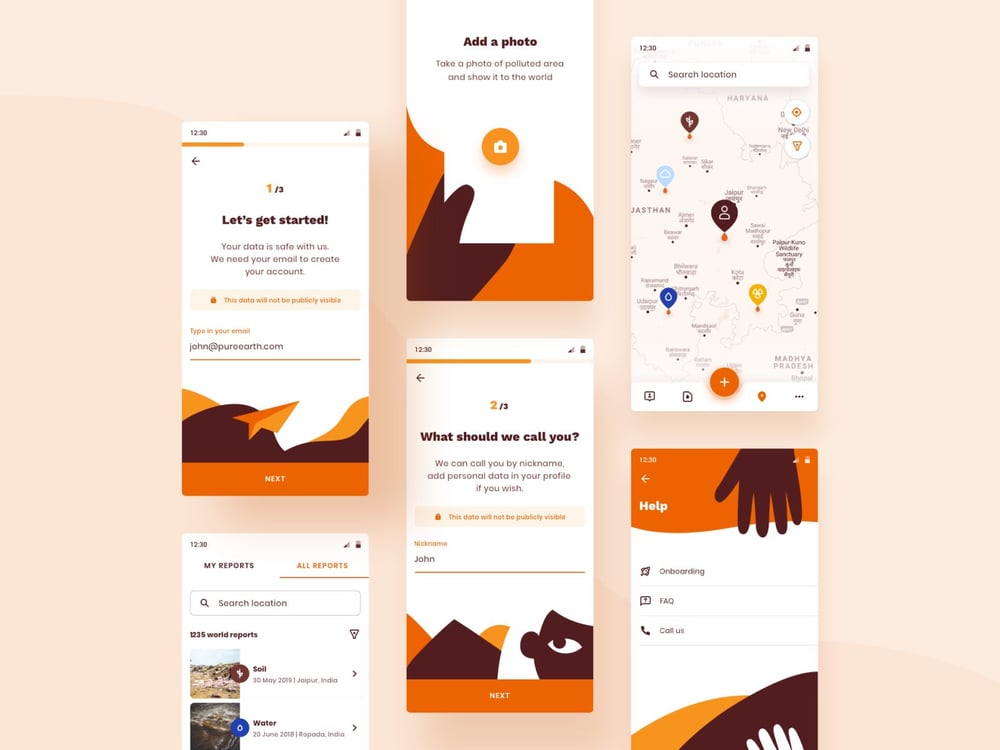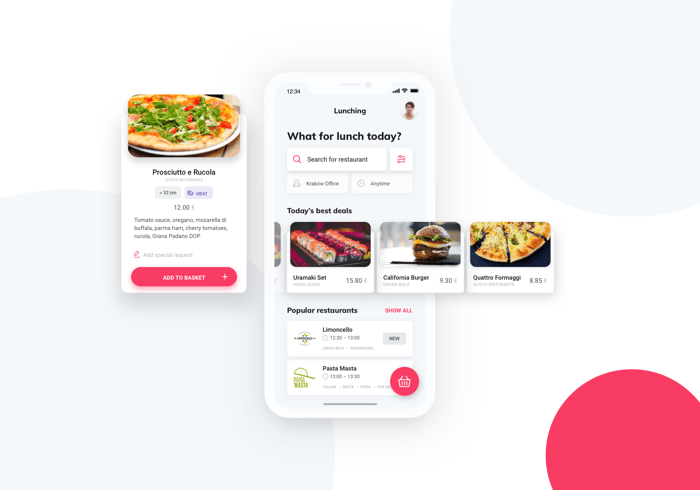Why Is Flutter the Best Option for Building a Mobile App MVP?

Flutter makes coding simple and has all the tools you need to produce apps that are smooth and perform well: a rendering engine, pre-built and easy-to-implement widgets, APIs for testing and integration, and command-line tools. From the perspective of the consumer, Flutter apps are experienced as native on both Android and iOS devices, which promotes a better user experience, with better branding. While it is used by organizations of every scale, it is particularly well-suited to startups.
Why are MVP apps crucial for startups?
It’s a well-known fact that most startups tend to fail. Nine out of ten startups fail, according to research conducted by Startup Genome, and even if they progress past the initial set-up, two out of ten new businesses fail in the first year of operations; and, by the tenth year, 70% have failed. To give startups a fighting chance, they need development options that are flexible and powerful without eating into their budget or resources.
Startups are generally restricted by three key things: time, money, and resources. Therefore, to get their idea off the ground, a Minimum Viable Product (MVP) app is created as a means of experimenting with ideas for products and services with only a minimal initial investment.
The MVP consists of enough features to give consumers a good idea of the product and its capabilities. Startups can gather feedback from their target audience, entice investors, shape their development strategy, add the features that people want, and begin building that all-important client base, after only a quick launch.
MVP apps are an important part of the early experimentation process, but can also remain crucial throughout a business’ lifetime. While they primarily help in testing new technology, app ideas, and services, they also offer the potential of drastically scaling up the project/service/product as the idea takes off. MVPs allow for exponential growth, rather than linear, which means developers are never caught short if the product becomes popular.
So, we understand why MVP apps are important. How does Flutter fit in?
What are the benefits of Flutter when used to create an MVP mobile app?
The benefits of Flutter revolve around those three key restrictions experienced by startups: time, money, and resources.
Flutter is an opportunity to propel a product to market; and, therefore, to get accurate feedback from market research sooner and after only a small investment. At this point, it offers a gateway to the scalability that is necessary for the fully-fledged product.
Minimum development cost
Flutter supports Dart as its primary programming language, which is known for being simple to use. This, in itself, requires a minimum learning curve for new and experienced programmers, which saves time and money that would be spent on education.
And, even with this simple programming language, Flutter keeps development to a minimum as it allows (almost all) code to be shared across iOS and Android simultaneously. Without Flutter, developers may have to natively develop their MVP app for both Android and iOS operating systems.
With less development, comes lower app development costs. Time-to-market expenses are reduced, without compromising on the versatility and availability of the app. Startups can therefore lower their app development cost estimates at the beginning of the project and invest that money into other parts of the project.
Faster time-to-market
Flutter SDK reduces the time-to-market of MVP apps, thanks to a few key features:
- When developers make a change to the code in Flutter (to fix bugs or add features) most of the time there is no need to recompile the code. Flutter’s hot reload feature injects updated source code files into the Dart VM, which automatically updates classes and rebuilds your widget tree, so you can quickly see what effects the changes have had. Hot reload is the primary reason app development is faster with Flutter.
- Flutter comes equipped with built-in widgets and ready-made components that simplify the app development process, which cuts down app development time and reduces the chances of error.
- Many other cross-platform frameworks require some kind of bridge to connect widgets to native components, which can cause performance issues and slow down app development. This isn’t the case with Flutter. As an example, Flutter’s core graphic machine, Skia, compiles the user interface into native code as the app user interacts with it.
Scalability
One of the key reasons that Flutter SDK is popular with businesses other than startups is its scalability. With just one single codebase, you can easily scale up to web, desktop, and embedded device applications. As your product grows, the easy-to-integrate capabilities of Flutter really come into their own, allowing you to modify and expand your app’s solutions and performance without compromising on quality.
Flutter is still considered a relatively new tool, which means that it is still in a phase of rapid development. Its capabilities increase regularly, so the potential upgrades for Flutter apps will also continue to increase.
Native mobile app development
Saving time and development costs are not the only benefit of Flutter’s cross-platform app development potential. Your apps will also deliver better user experiences with more attractive design across iOS and Android, as a native app would.
One example of this is Lunching, a food delivery app that offers a beautiful user experience on iOS and Android.

Attracting investors
With guaranteed rich performance across all mobile platforms, apps designed with Flutter are more likely to garner interest from investors. This is because, as Flutter apps can reach a wider audience more quickly and still offer high functionality, your product’s scope is larger and your target market is easier to reach.
In addition, Flutter enables developers to spend more of their time and resources refining the features of your app, which helps to ensure your product gets off to the best start possible and receives the most helpful feedback. Flutter already has a good reputation for offering reliable performance, stability, speed of development, scalability, and versatility - something that investors will value.
Flexible user interface
Flexible and scalable are buzzwords in the world of app-building; in today’s dynamic digital market, developing apps that can adapt to change and grow with a business is a must. Flutter is a flexible and scalable framework for developing cross-platform apps. Its success comes from its delivery of supreme design and development quality, which is combined with a limited, but powerful, tool-set that minimizes manpower requirements.
One of the key things that makes Flutter so flexible is the user interface design tools. Flutter owns the built-in Materials and Cupertino and the default animations for scrolling, rich motion, and more. With these tools available, developers are free to design an app that looks and behaves in the way that they want, without having to design the components themselves. As a result, Flutter app user interfaces are smooth and perform well, with minimal opportunities for problems to arise.
Developers can, however, choose to customize the built-in widgets provided by Flutter, which gives developers creative freedom on a basis of sound, reliable code.
Minimum resources required
With Flutter, all of the tools you need for development are included in one framework. You can, however, integrate popular cloud platforms, such as Firebase and AWS, which can facilitate features such as analytics, authentication, hosting, real-time databases, cloud functions, crash reporting, cloud storage, and more.
Therefore, while Flutter is a powerful tool in its own right, it can also easily connect to other resources to bolster its value over time.
The ultimate solution for MVP development
Flutter is the best option for building a mobile app MVP because of low development cost, fast time-to-market, and scalability. It guarantees high performance across all mobile platforms and attractive designed, which increases chances to garner interest from investors. Moreover, it provides rich user experience that customer mostly can experience from native mobile apps.
Flutter is the right choice for startups and scale ups because it helps overcome many limitations that can be experienced due to limited time and resources for a mobile app development.








